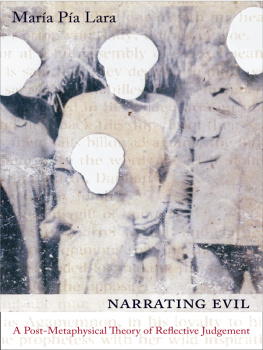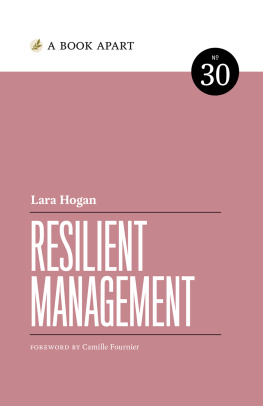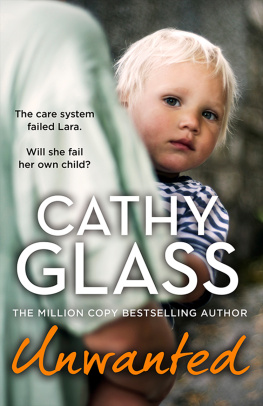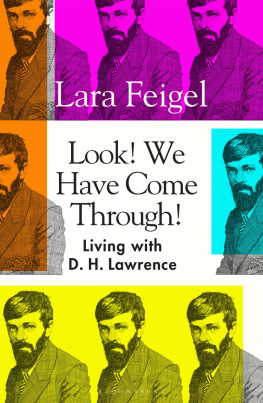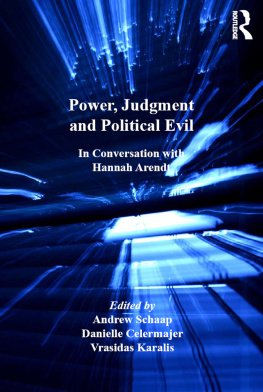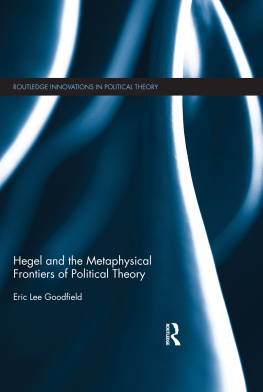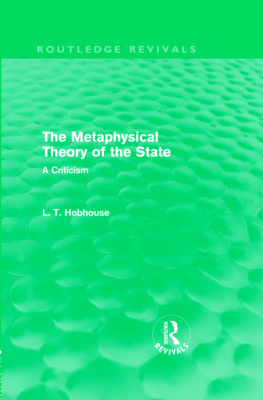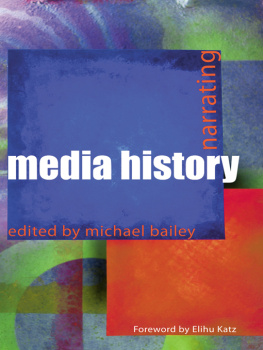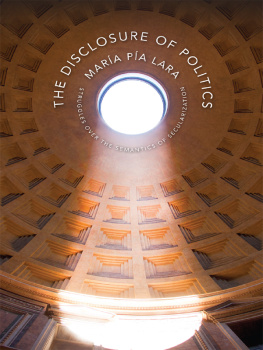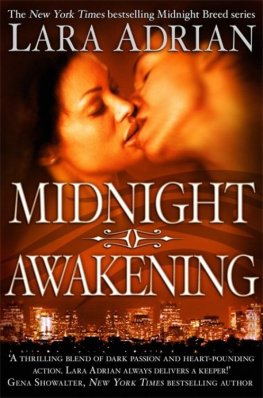Lara Maria - Narrating Evil: A Post-metaphysical Theory of Reflective Judgment
Here you can read online Lara Maria - Narrating Evil: A Post-metaphysical Theory of Reflective Judgment full text of the book (entire story) in english for free. Download pdf and epub, get meaning, cover and reviews about this ebook. year: 2008, publisher: Columbia University Press, genre: Romance novel. Description of the work, (preface) as well as reviews are available. Best literature library LitArk.com created for fans of good reading and offers a wide selection of genres:
Romance novel
Science fiction
Adventure
Detective
Science
History
Home and family
Prose
Art
Politics
Computer
Non-fiction
Religion
Business
Children
Humor
Choose a favorite category and find really read worthwhile books. Enjoy immersion in the world of imagination, feel the emotions of the characters or learn something new for yourself, make an fascinating discovery.
- Book:Narrating Evil: A Post-metaphysical Theory of Reflective Judgment
- Author:
- Publisher:Columbia University Press
- Genre:
- Year:2008
- Rating:4 / 5
- Favourites:Add to favourites
- Your mark:
- 80
- 1
- 2
- 3
- 4
- 5
Narrating Evil: A Post-metaphysical Theory of Reflective Judgment: summary, description and annotation
We offer to read an annotation, description, summary or preface (depends on what the author of the book "Narrating Evil: A Post-metaphysical Theory of Reflective Judgment" wrote himself). If you haven't found the necessary information about the book — write in the comments, we will try to find it.
Lara Maria: author's other books
Who wrote Narrating Evil: A Post-metaphysical Theory of Reflective Judgment? Find out the surname, the name of the author of the book and a list of all author's works by series.
Narrating Evil: A Post-metaphysical Theory of Reflective Judgment — read online for free the complete book (whole text) full work
Below is the text of the book, divided by pages. System saving the place of the last page read, allows you to conveniently read the book "Narrating Evil: A Post-metaphysical Theory of Reflective Judgment" online for free, without having to search again every time where you left off. Put a bookmark, and you can go to the page where you finished reading at any time.
Font size:
Interval:
Bookmark:

 This book was made possible through a number of research fellowships that allowed me to complete it after spending some time in those exciting academic environments. I would first like to thank The Fulbright Foundation for awarding me a 20012002 fellowship, which I spent as a visiting scholar at the New School for Social Research (now the New School University) in New York City. I want to express my gratitude to the New School for its generous assistance in making my year there a wonderful experience. I also wish to thank the Institute for Research on Women and Gender at the University of Stanford (Stanford, California); the Institute provided a place to start my research as a visiting scholar in 199899. I am indebted to my own universityUniversidad Autnoma Metropolitanafor giving me its generous support and a permanent place to develop my ideas and interests. For their institutional support in allowing me to finish my manuscript, I owe sincere gratitude to my colleague and friend Rodrigo Daz, the dean of the division of Social Sciences; to Luis Felipe Segura, the chair of my department; and to Max Fernndez, the coordinator of the philosophy departament. And warm thanks to Teresa Luna, secretary of the department, for all her invaluable help, support, and loyalty throughout the years that I have worked at the University.
This book was made possible through a number of research fellowships that allowed me to complete it after spending some time in those exciting academic environments. I would first like to thank The Fulbright Foundation for awarding me a 20012002 fellowship, which I spent as a visiting scholar at the New School for Social Research (now the New School University) in New York City. I want to express my gratitude to the New School for its generous assistance in making my year there a wonderful experience. I also wish to thank the Institute for Research on Women and Gender at the University of Stanford (Stanford, California); the Institute provided a place to start my research as a visiting scholar in 199899. I am indebted to my own universityUniversidad Autnoma Metropolitanafor giving me its generous support and a permanent place to develop my ideas and interests. For their institutional support in allowing me to finish my manuscript, I owe sincere gratitude to my colleague and friend Rodrigo Daz, the dean of the division of Social Sciences; to Luis Felipe Segura, the chair of my department; and to Max Fernndez, the coordinator of the philosophy departament. And warm thanks to Teresa Luna, secretary of the department, for all her invaluable help, support, and loyalty throughout the years that I have worked at the University. Why has evil become such a hot topic these days? Although there could be many reasons, it seems to me that the most important onethe most interestinghas to do with our growing concern with how this age-old problem has entered more and more into our consciousness. In other words, in spite of our failure to cope with human cruelty, we possess a clearer, more moral way to analyze what we call atrocities. Our last century was plagued by horrific actions of human cruelty; nevertheless, something about our understanding has been transformed. This book seeks to explore what has changed, why this transformation matters, and how we can learn from this specific historical development.
Why has evil become such a hot topic these days? Although there could be many reasons, it seems to me that the most important onethe most interestinghas to do with our growing concern with how this age-old problem has entered more and more into our consciousness. In other words, in spite of our failure to cope with human cruelty, we possess a clearer, more moral way to analyze what we call atrocities. Our last century was plagued by horrific actions of human cruelty; nevertheless, something about our understanding has been transformed. This book seeks to explore what has changed, why this transformation matters, and how we can learn from this specific historical development.Font size:
Interval:
Bookmark:
Similar books «Narrating Evil: A Post-metaphysical Theory of Reflective Judgment»
Look at similar books to Narrating Evil: A Post-metaphysical Theory of Reflective Judgment. We have selected literature similar in name and meaning in the hope of providing readers with more options to find new, interesting, not yet read works.
Discussion, reviews of the book Narrating Evil: A Post-metaphysical Theory of Reflective Judgment and just readers' own opinions. Leave your comments, write what you think about the work, its meaning or the main characters. Specify what exactly you liked and what you didn't like, and why you think so.

